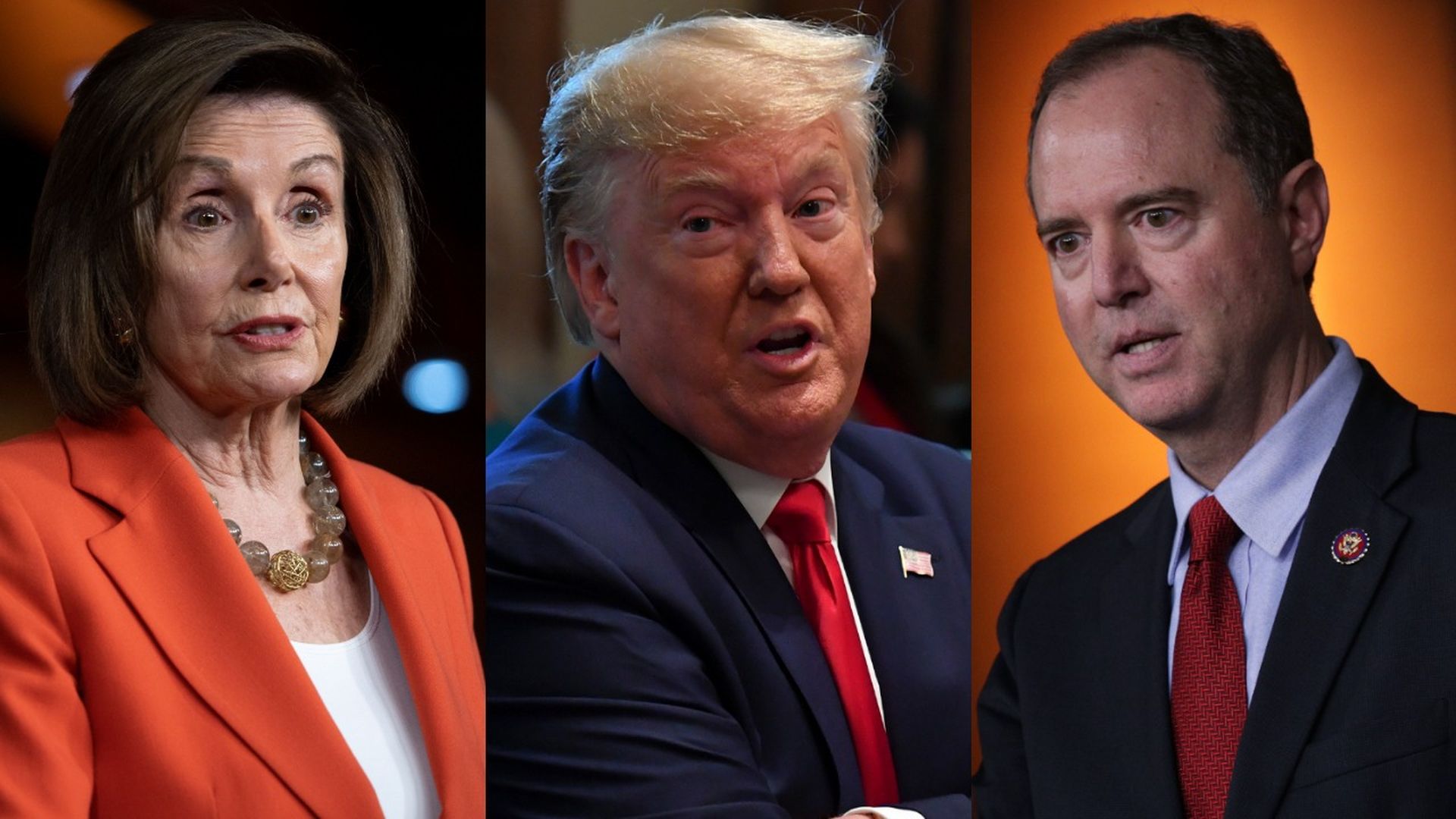House votes to formalize Trump impeachment inquiry procedures
Add Axios as your preferred source to
see more of our stories on Google.

Photos: Saul Loeb/AFP via Getty Images; Ricky Carioti/The Washington Post via Getty Images; Alex Wong/Getty Images
The House passed a resolution Thursday to formalize the procedures in President Trump's impeachment inquiry in a 232-196 vote that fell largely along party lines.
Why it matters: Trump and his allies have previously argued that the lack of a full House vote was against longstanding precedent — and used that reasoning to be uncooperative with Democrats' investigation.
- White House press secretary Stephanie Grisham responded with a statement saying that the resolution does "nothing more than enshrine unacceptable violations of due process into House rules."
- She called the process "unfair, unconstitutional, and fundamentally un-American."
- Trump weighed in with a tweet just after the vote closed: "The Greatest Witch Hunt In American History!"
The state of play: Republicans were united in their opposition, but two Democrats broke ranks to vote against the resolution, New Jersey's Rep. Jeff Van Drew and Minnesota's Rep. Collin Peterson.
- Independent Justin Amash voted for the resolution.
- Fewer lawmakers crossed over on Thursday than during the last House impeachment inquiry vote. In Oct. 1998, 31 Democrats votes alongside Republicans to launch an inquiry against President Clinton, while no Republicans voted "no."
The big picture: In a letter to fellow House Democrats on Monday, Speaker Nancy Pelosi wrote the resolution will "eliminate any doubt as to whether the Trump Administration may withhold documents, prevent witness testimony, disregard duly authorized subpoenas, or continue obstructing the House of Representatives."
- According to the resolution's text, the three committees — Judiciary, Intelligence, and Foreign Affairs — heading the inquiry will "determine whether sufficient grounds exist for the House of Representatives to exercise its Constitutional power to impeach Donald John Trump."
- The resolution calls for open hearings and demands the House Intelligence Committee draft a report outlining findings and recommendations.
- The House Judiciary Committee "shall report to the House of Representatives such resolutions, articles of impeachment, or other recommendations as it deems proper" at the conclusion of the inquiry.
Worth noting: The resolution allows ranking Republicans on the committees to subpoena witnesses — fulfilling a key GOP demand. However, it ultimately requires the Democratic chair's approval.
Go deeper: House Democrats race to finish impeachment inquiry in 2019
